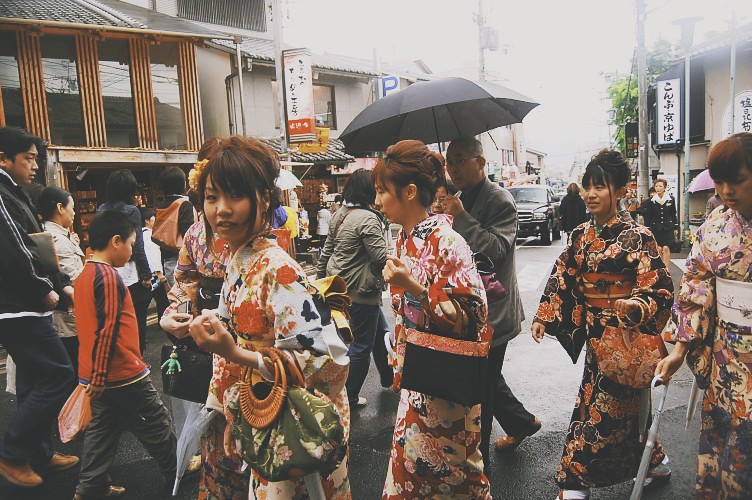To stem population decline Tokyo woos descendants of emigrants
The government wants to revise rules on permits for nikkei yonsei, foreign descendants up to the fourth generation. The first immigration incentives with the Abe government in 2018, albeit within strict labor, social and language terms. A revolution dictated by aging and declining population, collapsing consumers and active workers.
Tokyo (AsiaNews) - The governemnt of the Land of the Rising Sun plans to revise the current policy governing the granting of residence permits for nikkei yonsei, foreigners with fourth-generation Japanese ancestry. One of the most important changes will be the possibility of permanent residency permits to those who meet certain parameters.
The current policy-which went into effect in 2018-provides a work visa for up to five years for foreigners with fourth-generation Japanese descent who are between the ages of 18 and 30.
Under the current system, to obtain such a work residence permit, in addition to falling within the age range, other parameters must be met including: possessing a Japanese language certificate of N4 level (A2 according to the Cefr); no criminal record; having medical insurance coverage; and sufficient funds to return home. In addition, the permit is not extended to the family unit, excluding any spouses or children.
With the policy update, many of these parameters will change. In fact, the permit will be able to be extended to members of the household, as long as they have a command of the Japanese language that allows them to interact in daily life.
The age range is being extended, raising the established limit from 30 to 35. Finally, those who have already obtained a permit and have lived in Japan for five years will be able to apply-after passing an N2 (B2) level language test-for a permanent permit.
The changes will allow foreigners of fourth-generation Japanese descent no longer just to work for a limited time, but to plan to stay indefinitely. According to Kyodo News, the Immigration Services Agency of Japan hopes in this way to incentivize stable residence in the country.
Japan is known for the strictness of its immigration policies; however, it is since 2017 that the country has undertaken a change of course by softening many of its regulations, especially those that affect the labor force.
In 2018, under Shinzo Abe's government, Tokyo had simplified laws governing the presence of foreign labor with the creation of two new visa categories to encourage the employment of foreigners in sectors experiencing an employment crisis: construction, agriculture, and nursing. A five-year stay was provided for less skilled workers, while permanent residency was possible for the more skilled.
Initiatives to mitigate policies governing immigration are a direct result of the severe demographic crisis Japan has been in for more than a decade now. It was precisely the Abe administration that focused on policies that boosted immigration in the face of a rapidly aging population with fertility rates dropping to 1.25; in 2022 alone, the population declined by half a million, down for the twelfth consecutive year.
Hence the inevitable shrinkage of the working-age group of individuals (15-65 years) for which a further collapse is projected over the next 50 years, bringing this population group to just 45.35 million in 2070.
The decline in the working-age population will also inevitably lead to the shrinking of the consumer segment, with potentially dramatic consequences for the economy. Incentivizing permanent residency for those between the ages of 18 and 35-especially of those who, like the nikkei yonsei, can count on a connection to Japanese culture and might therefore find it less difficult to integrate into society-might be part of the solution.
The goal is to lift the fertility rate, reduce labor shortages in some of the sectors, and mitigate the decline in the consuming segment of the population. In less than a month, the fifth anniversary of the plan launched in 2018 will fall.
It will therefore be interesting to observe how many of those who were first granted visas five years ago will choose to stay in Japan indefinitely, managing to meet the criteria required by the policy.
22/12/2023 16:44
05/05/2017 14:57







.png)










